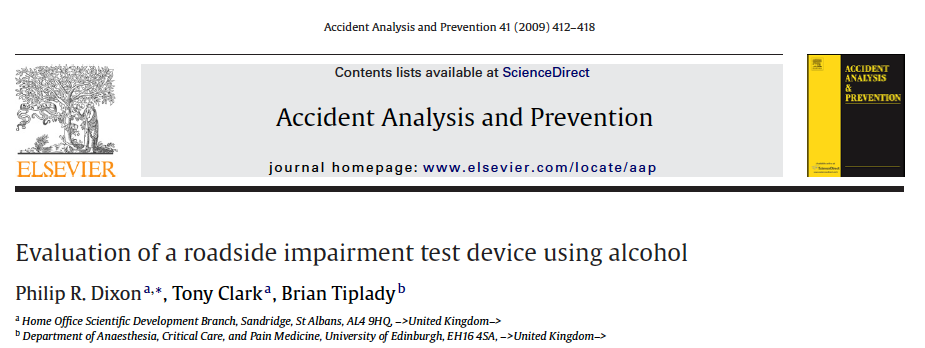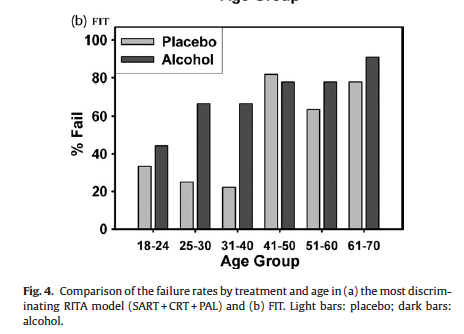Standardized Field Sobriety Test and Age: Why At Age 40 You Are Over the Hill
The Standardized Field Sobriety Tests have been used since the 1980’s to aid officers in the field in their decision-making to arrest motorists. But are they useful for all ages?
When I turned 35, I started to get direct mailing from the AARP wanting me to join and be a member. I really didn’t get it. The AARP is for retired folk. I’m still supposed to be in my prime for crying out loud.

Little did I know that the AARP is right. It seems as if according to the P.R. Dixon et al. in their 2009 published peer reviewed paper “Evaluation of a roadside impairment test device using alcohol” Accident Analysis and Prevention 41 (2009) 412–418, once we turn 40, the science shows that we start to rapidly deteriorate in our non-ethanol induced performance on the Standardized Field Sobriety Tests.


Wow.
2. Suitable motorist (health, nervousness) who can preform the test
3. Instructed properly
4. Interpreted (graded) properlyAlso pharmacodynamically, the Standardized Field Sobriety Tests make some fatal assumptions:Everyone is physically capable of doing these tests
Everyone is emotionally capable of doing these tests
Everyone can do these tests in that roadside environmentAny deviation has to be due to ethanol and ethanol alone.
Infrequently do all of the conditions precedent present and all of the assumptions apply. If any of the conditions precedent and and if any of the assumptions are not proven to apply to the motorist accused, then there is a non-validated result.


